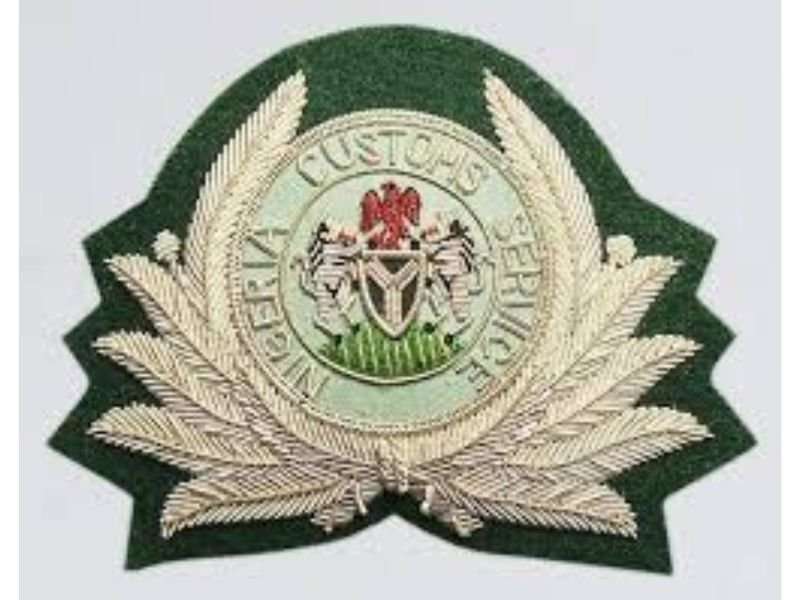The Nigeria Customs Service (NCS) plays a vital role in protecting the nation’s borders, collecting government revenue, and facilitating international trade. Each year, thousands of Nigerians eagerly await the announcement of recruitment into the service. As we approach Customs Recruitment 2025, prospective applicants must understand what to expect and how to prepare for a successful application.
Although the 2025 recruitment portal has not yet opened, the most recent recruitment cycle for 2024 provides a solid foundation for anticipating what the next round will look like. The NCS maintains a structured, transparent, and digitized approach to hiring, which is expected to continue in the upcoming year.
Table of Contents
ToggleThe Customs Recruitment Portal
The official recruitment website for the Nigeria Customs Service is https://recruitment.customs.gov.ng. This is the only legitimate portal for application submissions. On the homepage, users will currently find information about the recently concluded 2024 recruitment cycle. The interface includes a search function for retrieving Acknowledgement Slips using the applicant’s National Identification Number (NIN). This same function is expected to be in place for 2025 applicants as well.
Importantly, the site warns against fraud, emphasizing that the application process is entirely free. Any individuals or groups asking for payment in exchange for employment are operating scams, and applicants are advised to report such attempts to the appropriate authorities.
Vision and Mission of the Nigeria Customs Service
Understanding the NCS’s vision and mission gives insight into what kind of personnel they aim to recruit and why the recruitment process is so detailed.
The vision of the Nigeria Customs Service is “to be a leading-edge, modern, and efficient Customs administration renowned for excellence in service delivery and contributing to Nigeria’s economic prosperity and national security.” This underscores their commitment to innovation, professionalism, and national development.
Their mission is centered on fostering economic growth by ensuring a competent workforce, generating revenue effectively, promoting voluntary compliance through digital systems, and collaborating with national and international stakeholders to ensure national security. This mission influences recruitment, ensuring that only individuals who align with these goals and can contribute meaningfully are selected.
Core Functions of the Nigeria Customs Service
The Nigeria Customs Service is responsible for two main functions: revenue collection and the suppression of smuggling.
Revenue collection involves gathering customs duties on imports and exports. Newly recruited officers are instrumental in ensuring these duties are accurately assessed and collected, following customs valuation and classification standards.
The suppression of smuggling is equally important. Customs officers are trained and deployed to detect and intercept illegal goods entering or leaving Nigeria’s borders. This requires vigilance, integrity, and in some cases, tactical enforcement measures.
With the move toward a digitized customs system (e-Customs), newly recruited officers are expected to contribute to the modernization of customs operations. Skills in ICT, data management, scanning technology, and surveillance will be increasingly valuable in the 2025 recruitment.
Recruitment Structure and Application Categories
During the 2024 exercise, the recruitment was broken down into several categories and cadres. It is expected that the 2025 recruitment will follow a similar structure. Here are the major groups:
-
Support Staff: This includes professionals in fields such as medicine, engineering, pharmacy, and other specialized technical areas. These positions typically require advanced degrees or certifications.
-
General Duty: Open to applicants from all academic backgrounds. This category is often the most applied to, as it accommodates a wider range of qualifications.
-
Superintendent Cadre: Candidates applying under this cadre usually possess university degrees (Bachelor’s or HND) and must have completed the NYSC program.
-
Inspectorate Cadre: Requires National Diploma (ND) or National Certificate of Education (NCE). Applicants in this category support mid-level operations.
-
Customs Assistant Cadre: This is the entry-level category for candidates with Senior Secondary School Certificates (SSCE).
The application process involves selecting a category, choosing a cadre, and filling in detailed personal, educational, and physical data. Applicants are advised to choose the most appropriate category based on their educational background and career goals.
The Application Process
While the 2025 application process has not yet commenced, the portal is expected to reopen for submissions around late December 2025, judging by the 2024 schedule which ran from December 27, 2024, to January 2, 2025.
Applicants will need to:
-
Visit the official portal:
-
Register an account using a valid email and phone number.
-
Fill out personal details including full name, gender, date of birth, height, weight, and chest measurement (for males).
-
Provide academic qualifications, institutions attended, and NYSC details where applicable.
-
Enter local government area (LGA) and state of origin/residence.
-
Upload a passport photograph and valid identification.
-
Review the form thoroughly before submission.
-
After submission, return to the portal to print your Acknowledgement Slip using your NIN.
Technical guidance offered by the NCS includes advice on using a stable internet connection and ensuring all dropdown menus (like LGA selection) load correctly before proceeding. Delays are often due to connectivity, not a problem with the site itself.
Acknowledgement Slip and Post-Submission Instructions
After submitting the application, successful applicants can return to the portal to download and print an Acknowledgement Slip. This slip serves as confirmation that the application was received. It includes a unique reference number (e.g., NCS/2025/GD/08/281099), and restates all submitted information: personal details, educational background, cadre selected, and contact information.
Applicants are advised to keep the Acknowledgement Slip safely, as it will be required during the next stages, including aptitude tests, physical screening, or final selection. There is also a disclaimer warning that submitting the form does not guarantee selection. Any attempt to provide false information could lead to disqualification or legal prosecution.
What to Expect in Customs Recruitment 2025
Based on past exercises, Customs Recruitment 2025 will likely continue to prioritize transparency, inclusivity, and competence. There may be a larger emphasis on digital skills due to the ongoing transition to e-Customs systems.
More roles may be created in technical areas such as IT infrastructure, cybersecurity, data analysis, and surveillance operations. Applicants with tech-related skills may find greater opportunities than ever before.
The timeline is expected to mirror the 2024 structure, meaning an announcement in December 2025, with applications closing in early January 2026. The aptitude tests, physical screenings, and final shortlisting will follow shortly after.
How much is a custom salary in Nigeria?
The salary of officers in the Nigeria Customs Service depends largely on their rank, years of service, and allowances tied to their duties. On average, a newly recruited Nigeria Customs officer earns between ₦45,000 and ₦70,000 monthly during training, which increases significantly after full commissioning. Once confirmed, salaries range from around ₦75,000 for lower ranks like Customs Assistant to over ₦300,000 per month for senior ranks such as Superintendent and Comptroller.
Additional allowances include hazard pay, housing, transport, and special duty incentives, which can substantially raise take-home pay. The pay scale follows the Consolidated Paramilitary Salary Structure (CONPASS) adopted for paramilitary agencies in Nigeria. Beyond salaries, Customs officers also benefit from pensions, medical care, and periodic training stipends. Overall, it is considered a competitive employment package within Nigeria’s federal agencies, attracting thousands of applicants each year eager for stable income and career growth.
How much is Nigerian recruitment salary per month?
When talking about “Nigerian recruitment salary per month,” it generally refers to the starting pay new recruits receive across various federal agencies, including the Customs, Immigration, Civil Defence, and Police. During the initial training period, which can last 6 to 9 months depending on the agency, recruits often earn between ₦40,000 and ₦60,000 monthly as training allowance. For example, Nigeria Customs trainees typically receive around ₦45,000–₦50,000, similar to counterparts in Immigration and Civil Defence.
Once fully absorbed and posted to their duty stations, salaries rise to ₦70,000–₦100,000 for entry-level ranks, with room for growth as promotions come. This pay is complemented by other benefits like uniforms, meals during training, and basic health coverage. While not extremely high compared to private sector roles, these government jobs offer job security, steady increments, and pensions, making them attractive to many Nigerian youths seeking stable public service careers.
What is the age limit for custom recruitment?
For the 2025 Nigeria Customs recruitment, the official age requirement remains 18 to 30 years old for most entry-level positions. Applicants must have attained a minimum age of 18 and not be older than 30 by the closing date of application. This aligns with the general federal civil service rules for paramilitary agencies. However, there are slight exceptions: applicants with professional qualifications or applying for specialist roles (like medical doctors, pharmacists, or engineers) may have extended age ceilings up to 35 years, depending on internal service needs.
Age is strictly enforced, with birth certificates, national ID cards, or declarations of age required to prove eligibility. Any discrepancies can lead to immediate disqualification. This age policy ensures the Customs Service recruits physically fit and mentally agile young Nigerians who can handle the rigors of field operations and also build long-term careers serving the nation’s economic and border security interests.
Is the Nigeria custom shortlist out for 2025?
As of the latest update in June 2025, the Nigeria Customs Service (NCS) has not yet released the official shortlist for the 2025 recruitment exercise. Applicants who completed their online applications and participated in the screening stages are advised to keep checking the official NCS recruitment portal and also monitor reputable Nigerian news outlets for announcements. Typically, the shortlist is published a few months after the closing date of applications, often accompanied by instructions on documentation, training schedules, and venues for further screening.
Beware of fake lists circulating on social media; the Customs Service always stresses that only names posted on their official platforms are valid. Candidates are encouraged to have their credentials, passport photos, and screening slips ready so they can respond quickly once the shortlist is out. Staying patient and alert is key to not missing out on this crucial stage of the recruitment process.
Conclusion
The Customs Recruitment 2025 is a significant opportunity for Nigerians to join a prestigious, disciplined, and impactful government agency. The Nigeria Customs Service continues to evolve with modern systems and procedures, and it seeks capable individuals ready to support its mission of economic growth and national security.
Aspiring candidates should begin preparing now—mentally, physically, and academically—to ensure they are ready when the application window opens. Keep visiting the official recruitment portal, follow all official updates, and take proactive steps to submit a flawless application once the recruitment cycle for 2025 begins.
If you’d like help monitoring the portal, preparing your application, or understanding which cadre suits your qualifications best, I’d be happy to assist further.

